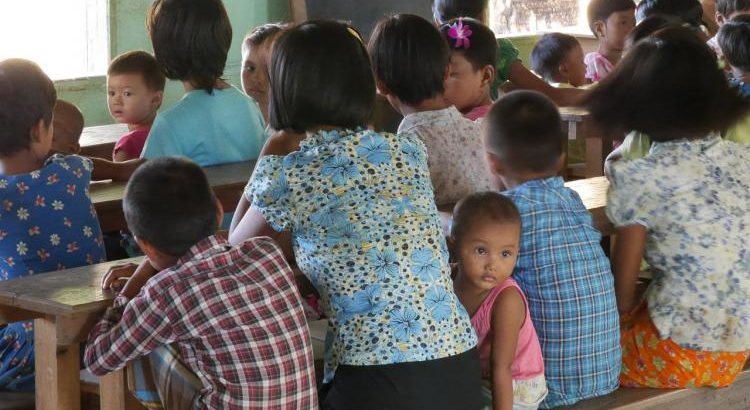Unesco, the UN agency charged with improving global education, has recently been in the headlines for all the wrong reasons.
Rows over alleged anti-Israel bias following the admission of Palestine as a full member have led to the withdrawal of US and Israel from the organisation. Even the appointment of the former French culture minister, Audrey Azouley, as the new director-general was reported in terms of her family background and the voting machinations behind her appointment.
This white noise is distracting attention from the urgent mission of Unesco. It is the only global body, supported by most of the world’s governments, which can be mobilised to solve the global education crisis. During her tenure, Ms Azouley must avoid the political squalls that have dogged the organisation and communicate to the world the importance of education – which has fallen down the world’s priority list over the past decade.
The agency is losing a director-general in Irina Bokova, whose steady hand has helped guide the Sustainable Development Goals. She has supported international gatherings of education ministers where they can share expertise and priorities – including the Global Education & Skills Forum. Through incisive reporting, Unesco has also highlighted the gap between where global education is and where it needs to be in the coming years.
Addressing this gap will require all of Ms Azoulay’s reserves of creativity and energy. In the current media climate, dominated by explosive presidential tweets and a cacophony of shrill voices, important long-term issues are being drowned out. Ms Azoulay needs to be bold, framing the global education crisis in a compelling way to cut through in this world of short-attention spans, instant journalism and fake news.
Unesco must rally governments and build momentum, just as the UN did prior to the Paris climate talks in 2015.
The truth, which isn’t widely known, is that progress on improving education among the world’s poorest children has stalled. Up to 2011, the number of children out of primary school had been reduced to 57 million from a high of 102 million in 2000. By last year, this number had risen again to 61 million, with a total of 263 million altogether out of school.
Of these, 34 million live in Sub-Saharan Africa, where more than a fifth of primary-age children are out of school. However, the challenge is not just at the level of school coverage: in many countries, teachers are poorly trained and supported, meaning that learning outcomes are poor. The effect of this is that around 175 million young people in poor countries – equivalent to one quarter of the youth population – cannot read a sentence.
The decline in education aid funding
Changes are coming in the world economy that will hit developing countries hardest. As machines take over tasks from humans – in everything from textiles and agriculture to administration— the impact on current patterns of employment is likely to be devastating. A report from the Oxford Martin School estimates that a staggering 85 per cent of currently existing jobs in Ethiopia risk being lost to automation, along with 69 per cent in India and 77 per cent in China.
In order to stay in the game, countries must now begin to educate their citizens differently. As well as traditional academic skills, future labour market success will require creativity, communication skills and lateral thinking. The main obstacle is that many developing economies are currently ill-equipped to train their young people in these skills. Teacher numbers are falling annually in Ethiopia, Pakistan and Cambodia, and class sizes frequently reach 60 pupils. Unesco says we need 68.7 million extra primary and secondary school teachers in order to get all children into education by 2030, which will require $39 billion (£30 billion) every year to fill the funding gap.
This means Unesco needs to be even bolder in calling governments out on this issue. Tragically, there has been a decade-long decline in education aid at precisely the time at which it was most needed. One option would be to call on all governments to sign legally binding agreements to increase education aid for the next decade. World leaders, especially in the G7, must understand that there is only a short time in which the destructive impact of automation on the poorest countries can be avoided. Regrettably, education is still often thought of as something to be addressed only once poverty has been eradicated, hunger ended and healthcare improved. Yet, none of these problems can be fully remedied without reliable, quality education provision.
Changing attitudes requires some fearless advocacy from Unesco, which, representing the world, can still speak with a moral legitimacy that others lack. And yet, in recent years, it has ceded ground to other organisations that are doing important work but cannot speak with the kind of mandate that can shift the international community’s direction of travel. The millennium development goal of «universal primary education» was missed, despite progress. The sustainable development goal of an «inclusive and equitable quality education» will not be reached for generations if current trends continue. Ms Azouley’s most important duty in office is to persuade governments that are backsliding on their commitments to think again – either through calling them publicly out or behind-the-scenes diplomacy.
Ms Azouley must find ways of making the public understand that a failure to educate a child anywhere in the world will, in the end, create instability for us all – through irregular migration and the potential growth of extremism and conflict – whether we are in the developed or developing world. Unesco must rise above the political squabbles that have sometimes defined the organisation. Its duty is to avoid another generation facing the crushed ambitions and hopelessness that follow when any child is denied a decent education.
Vikas Pota is chief executive of the Varkey Foundation
Fuente noticia: https://www.tes.com/news/school-news/breaking-views/failure-educate-a-child-anywhere-world-risks-instability-us-all








 Users Today : 5
Users Today : 5 Total Users : 35460462
Total Users : 35460462 Views Today : 5
Views Today : 5 Total views : 3419300
Total views : 3419300